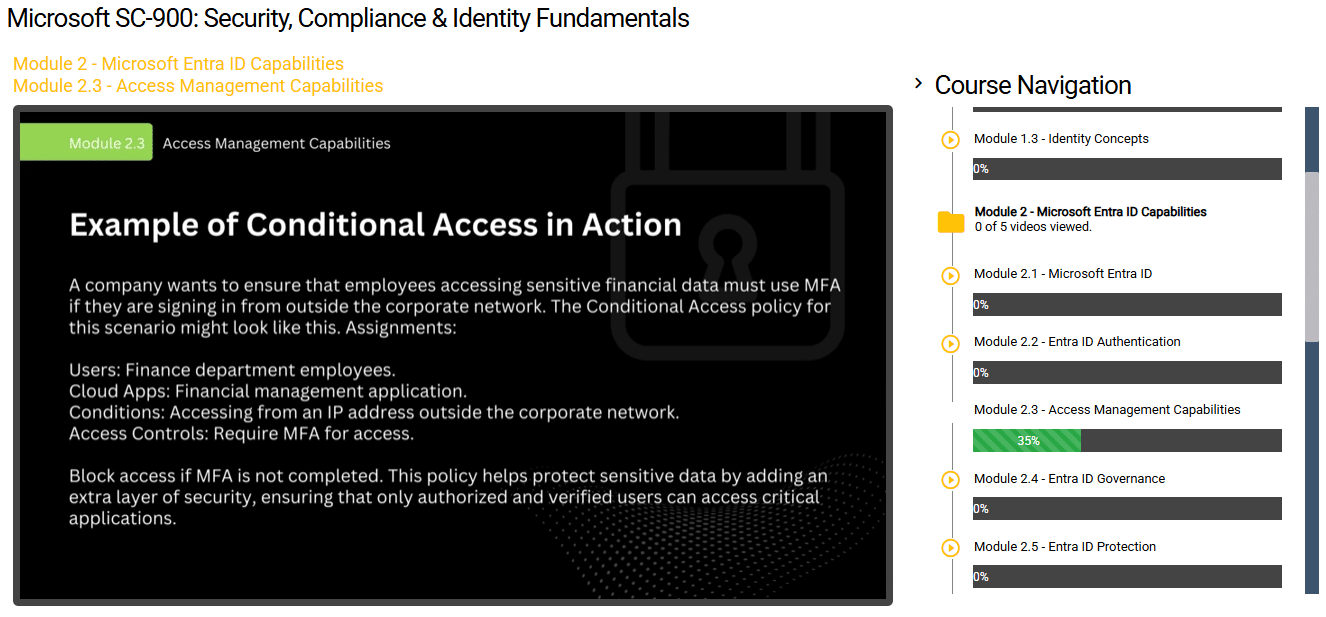Navigate IT Transitions with Confidence
In the ever-evolving world of IT, managing change effectively is essential for success. Mastering Change Management for IT Teams is a comprehensive course designed to equip IT professionals with the expertise to lead and support change initiatives seamlessly. You’ll gain insights into the core principles of change management, practical strategies to overcome resistance, and the critical role of communication in ensuring a smooth transition.
This course explores various types of change within IT environments, from technology upgrades and process improvements to organizational shifts. You’ll also discover essential tools and methodologies that drive successful change management, reinforced by real-world case studies, such as Agile transformation and cloud migration. By the end of this course, you’ll be equipped to lead IT change initiatives with confidence, ensuring sustainable success.
Key Takeaways from Mastering Change Management for IT Teams
Gain a deep understanding of change management and how it applies within IT teams. This course provides hands-on strategies and frameworks to help IT professionals navigate change effectively.
- Grasp the fundamentals of change management and its significance in IT.
- Identify and categorize different types of IT-driven changes.
- Implement strategies to address and mitigate resistance within IT teams.
- Develop robust communication plans to facilitate smooth transitions.
- Utilize digital tools and technologies to streamline change management.
- Learn from real-world case studies of successful IT change initiatives.
Who Should Take This Course?
This course is ideal for IT professionals at all levels who play a role in driving or adapting to change within their organizations. Whether you’re leading a project or contributing to an evolving IT landscape, this course provides valuable insights and actionable strategies.
- IT Managers looking to enhance their change management skills.
- Project Managers responsible for overseeing IT-related transformations.
- Team Leaders guiding teams through technical and organizational shifts.
- IT Professionals seeking to better understand the impact of change on their workflows.
- HR Professionals involved in organizational transitions within IT departments.
Career Opportunities with Change Management Expertise
Mastering change management in IT opens doors to a wide range of career opportunities. These skills are in high demand across industries, allowing professionals to lead and support transformation initiatives effectively.
- Change Management Specialist
- IT Project Manager
- Organizational Development Consultant
- IT Operations Manager
- Agile Coach
Industry Salaries for Change Management Professionals
The demand for IT change management expertise continues to grow, leading to competitive salaries in the field. Here are some estimated salary ranges:
- Change Management Specialist: $85,000 – $110,000 per year
- IT Project Manager: $90,000 – $130,000 per year
- Organizational Development Consultant: $95,000 – $125,000 per year
- IT Operations Manager: $100,000 – $140,000 per year
- Agile Coach: $105,000 – $145,000 per year
Enroll Today and Lead IT Change with Confidence
Don’t let change disrupt your IT projects—embrace it as an opportunity for growth. Enroll in Mastering Change Management for IT Teams today and gain the tools, knowledge, and strategies needed to lead successful IT transitions. Start your journey towards becoming a change management expert now!
Course Outline
Module 1 – Introduction to Change Management in IT
1.1 – Change Management Course Introduction
1.2 – Defining Change Management
1.3 – Types of Change
Module 2 – Strategies for Managing Resistance to Change
2.1 – Understanding Resistance to Change
2.2 – Proactive Strategies for Overcoming Resistance
2.3 – Building Resilience in IT Teams
Module 3 – Developing Communication Plans for Change Initiatives
3.1 – Role of Communication in Successful
3.2 – Crafting Clear and Consistent Messages
3.3 – Utilizing Various Communication Channels
Module 4 – Tools and Technologies for Supporting Change in IT Teams
4.1 – Digital Tools for Change Management
4.2 – Automation and Workflow Management
4.3 – Key Metrics for Tracking Change Management Success
Module 5 – Case Studies of Effective Change Management in IT
5.1 – Case Study 1: Changing To Agile
5.2 – Case Study 2: Cloud Migration
5.3 – Course Closeout
Frequently Asked Questions Related to Change Management in IT Teams
Change management in IT teams is a structured approach to planning, implementing, and monitoring changes related to technology, processes, or organizational structures. It ensures that transitions—such as software updates, system migrations, or workflow optimizations—are executed smoothly while minimizing disruptions. Effective change management also involves risk assessment, stakeholder engagement, and strategies for addressing resistance to change, ensuring that IT operations remain stable and efficient.
Change management is essential in IT because technology evolves rapidly, and organizations must adapt to remain competitive. Without a structured approach, implementing new tools, policies, or workflows can lead to operational disruptions, reduced productivity, and user frustration. Effective change management mitigates these risks by ensuring that transitions are well-planned, communicated, and supported. It also enhances user adoption, reduces the likelihood of project failures, and helps maintain team morale by fostering a sense of stability and confidence in the process.
Resistance to change in IT often arises from uncertainty, fear of increased workload, or skepticism about new processes. To address this, IT teams should:
Engage stakeholders early – Involve key users, managers, and technical staff in the planning process to create a sense of ownership.
Communicate clearly – Explain why the change is happening, its benefits, and how it will affect day-to-day operations.
Provide training and support – Equip team members with the necessary knowledge and resources to ease the transition.
Encourage feedback and participation – Give employees a voice in the decision-making process to build trust and acceptance.
Foster a culture of adaptability – Promote continuous learning and a mindset that embraces change as part of innovation and growth.
By following these strategies, IT teams can minimize resistance and improve the chances of a successful transition.
A variety of tools can help IT teams manage change efficiently by facilitating communication, tracking progress, and automating workflows. These include:
Project Management Software (e.g., Jira, Trello, Asana) – Helps organize tasks, assign responsibilities, and monitor project timelines.
Communication Platforms (e.g., Slack, Microsoft Teams) – Ensures seamless collaboration and real-time updates.
Workflow Automation Tools (e.g., ServiceNow, Zapier) – Streamlines repetitive processes, reducing manual intervention and errors.
Metrics and Reporting Systems (e.g., Power BI, Google Analytics) – Tracks performance, identifies bottlenecks, and measures the success of implemented changes.
Using the right combination of these tools ensures a structured, transparent, and efficient change management process.
Several organizations have successfully implemented change management strategies to drive digital transformation and operational improvements. Some notable examples include:
Agile Transformation – Many IT teams have successfully shifted from traditional waterfall development to Agile methodologies, allowing for faster iterations, improved collaboration, and enhanced product quality.
Cloud Migration – Companies moving from on-premises infrastructure to cloud-based solutions (e.g., AWS, Azure, Google Cloud) have leveraged change management to minimize downtime, optimize security, and train employees on new cloud-based tools.
Cybersecurity Overhaul – Implementing stronger security policies, such as multi-factor authentication (MFA) or zero-trust architecture, requires structured change management to ensure compliance and minimize disruptions.
ERP System Upgrades – Organizations replacing legacy enterprise resource planning (ERP) systems have used structured change management to train employees, prevent data loss, and ensure a smooth transition.
These examples highlight how a well-executed change management approach can lead to improved efficiency, reduced risks, and long-term success.




